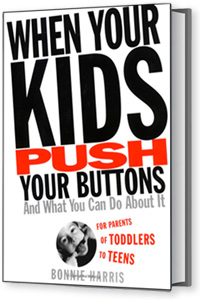
Q. I’m concerned about my almost 15 year-old boy. He is depressed and with good reason. He is slightly on the spectrum and has A.D.D. (no hyperactivity). We’ve moved twice in 14 months and we’re currently renting. He is a creature of habit and our lives have been very unpredictable for almost three years. He lost his baby brother when he was 6 and had to deal with Mom and Dad’s grief. He is totally quiet and therefore doesn’t make friends. Being stuck at home doesn’t help. He has never really talked much, especially about emotions. How can I help him open up?
A. Everything you have described is life events that have been out of your or your son’s control. Very hard but this is life happening. These are situations that people have to deal with. Depression has all to do with how those events are perceived and dealt with. If your son’s emotions are swept under the carpet, ignored or criticized, then he will be left feeling unheard, alone, misunderstood, etc. – fertile ground for depression. But if his feelings are acknowledged, even if your son doesn’t do much talking, then he is left with the sadness, grief, or anger about the situations, but everything is out in the open and feelings usually do not fester to cause depression.
We want and often expect our kids to be open with us emotionally – mothers especially. But not all kids, especially boys, are open with their thoughts and feelings. That doesn’t mean they feel unheard. How we communicate with them has all to do with how they feel about themselves.
When you have a non-talker, you want to make sure you don’t use the excuse that he doesn’t open up or share to ignore the situation and not talk about it. You can use what I call connective communication (best communication with anyone actually), which does not ask questions. When you ask questions – What’s wrong? How do you feel about…? Why don’t you…? – you put him on the spot, and he feels forced to come up with something. He may lie, tell you what he thinks you want to hear or what he knows you don’t want to hear to get you off his back. Rarely do questions, unless and until you have a very open connective relationship, get you the information you want.

Making statements goes a lot further:
Moving as many times as we have done lately must be quite discombobulating for you. I know how difficult change can be, and we’ve forced you into a lot of it. Changing schools is tough. I’m actually amazed at how well you have taken it. But I imagine that it has taken its toll on you. It’s really hard, right now. Period.
I wonder sometimes about how you are with not having many friends. I’m curious to know if that’s hard on you or if that is your choice. Sometimes kids your age can be tough to be around. Period.
Sometimes I think about how hard it must have been for you when Dad and I were grieving the loss of your little brother. We weren’t there for you as much as I would have liked. I feel so sad about that time – for all of us. Period.
That must have been hard to hear. I bet if I were you, I would have felt angry and confused. Period.
It’s so hard not to ask questions when you are hoping to find out answers. When there are no questions, the other person feels more inclined to listen, doesn’t feel obligated to talk, and connection gets better. Ironically, talking is more likely – but don’t expect it.
What your son needs is to know he can talk with you WHEN and IF he wants to. Especially kids on the spectrum have a harder time organizing their thoughts and making sense of them enough to formulate a conversation. Talking about emotions is hard for most people, males especially, and for an ADD kid on the spectrum, it’s especially tough.

Also, boys tend to talk more when they are active, which may be why he talks to your husband more. Shoot hoops, take a bike ride or a walk. In the car, at bedtime if you are around him then (maybe not at 15), and perhaps mealtimes may be times to share yourself and how you are feeling. Your job is to model for him what it looks like to talk about emotions and values and what you think about people and events. Don’t expect it from him. If you don’t talk to him because there’s not much coming back, you are not being honest with yourself; you’re actually fearful of him.
But the important thing to know is that traumatic life events only negatively affect us long-term when they are shoved down inside and not dealt with. His ability to talk about things will come from your openness and freedom to share how you feel and think. And just naming what happened in his life to cause upset is validating for him. Eventually he will be able to talk about it himself but maybe not with you.

I would hesitate to identify him as depressed. Once you feel connection through making statements, then you can ask questions. Then you might ask, “Do you think you’re depressed?” If he responds with a yes, then ask, “Don’t you think getting help would be a good thing? Once you have made connection, he may feel differently about getting help because you can freely talk about it and help him see that this is not about him being a problem. If he still doesn’t want to, don’t force it. Hopefully he will come to it on his own.
But then again, maybe he’s not depressed! Maybe he just looks it from your point of view. It is so easy for us to project our way of seeing things onto our kids. We have to consciously be aware that what is a problem for me might not be for my child.

Quietness can easily be interpreted as depression – unfairly. Introverts are looked on with concern or pity in our society – completely the opposite in other societies. Nothing wrong with being quiet and introverted. He is likely a deeply perceptive person who works things out internally long before he expresses himself. Extraverts are the opposite. They have to talk it through to know what they think!
Often deep thinkers are not drawn to the more popular high school kids. They have nothing in common with them. It often takes years before many kids find their tribe — others who share their interests and values.
To submit a question, email me at bh@bonnieharris.com with your short question and I will answer you within a few days. It may appear in the newsletter at a later date.
 We punish our children in an attempt to keep them from pushing our buttons, often escalating the original problem into a cycle of anger and blame. When Your Kids Push Your Buttons is not about what to do to your kids to get them to stop pushing your buttons. This book is about how to be the parent you wish you could be-the parent that only you are holding yourself back from.
We punish our children in an attempt to keep them from pushing our buttons, often escalating the original problem into a cycle of anger and blame. When Your Kids Push Your Buttons is not about what to do to your kids to get them to stop pushing your buttons. This book is about how to be the parent you wish you could be-the parent that only you are holding yourself back from.
Related Articles:







